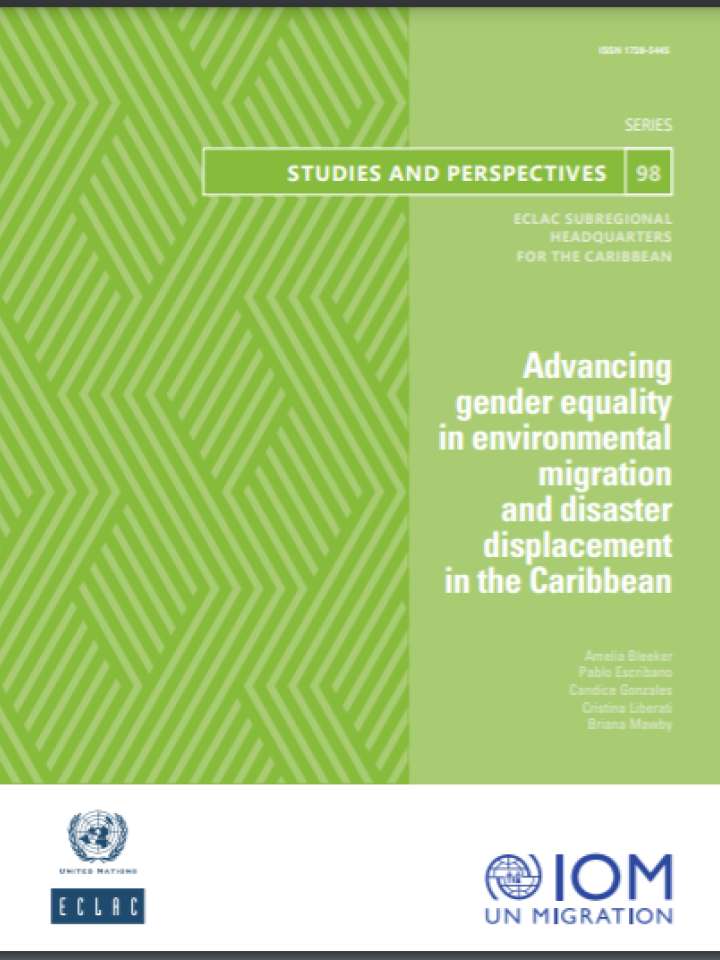Advancing gender equality in environmental migration and disaster displacement in the Caribbean
Disaster displacement and environmental migration are among the most serious humanitarian challenges facing the Caribbean. As a subregion of small island developing States (SIDS) which are vulnerable and prone to extreme weather events and the impacts of climate change, the Caribbean is constantly faced with population displacement resulting from these events. Individuals experience these migration processes uniquely on account of their gender specific inequalities, vulnerabilities, and access to resources and opportunities. It is critical to understand how the consequences of environmental migration and disaster displacement are gendered in order to address and prevent harm and to protect the rights of women and girls and people of all genders who experience intersecting forms of discrimination.
Important findings that are applicable across the Caribbean can be drawn from this study, serving as a foundation for recommendations to improve public action and policymaking. Findings include:
- Gender is a fundamental factor for understanding environmental migration and disaster displacement.
- Disaster situations, displacement and temporary accommodations require gender-responsive interventions.
- Limited access to resources and opportunities influences gender-specific vulnerabilities and capacities to return to communities of origin after displacement.
- Gender-based violence is a critical issue to be addressed in environmental migration and disaster situations.
- Improved evidence and data are required to facilitate gender-responsive policymaking.
- Create opportunities to promote and recognize women’s knowledge, empowerment and leadership.
- Specific policies are still required on the gender aspects of environmental migration in slow-onset scenarios.
- Responding to the needs of marginalized groups requires accounting for multiple, compounded vulnerabilities.
Explore further
